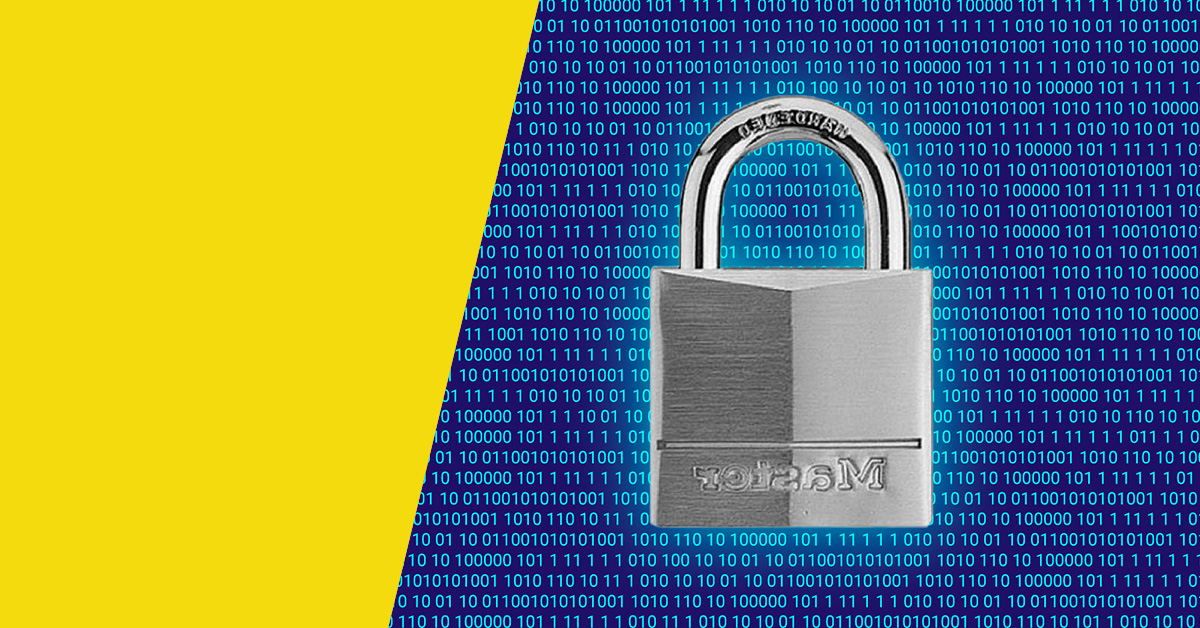After more than a year of working remotely, we’ve all learned a thing or two about the possibilities of an expanded digital landscape. But, while the world of technology opens access and opportunity for us all, it also comes with the requirement to remain vigilant.
Did you know? In October, Statistics Canada reported that 21% of the overall Canadian business population reported being impacted by cybersecurity incidents in 2019: that’s equal to 43% of large businesses, 29% of medium-sized businesses, and 18% of small businesses. The World Economic Forum’s 2020 Global Risks report also ranked cyberattacks on critical infrastructure fifth on its list of largest risks to global order, and predicted that by 2021, cybercrime damages might reach US$6 trillion, what would be equivalent to the GDP of the world’s third largest economy.
Protecting networks, information, systems, and infrastructure is now an essential part of keeping all Canadians and Canadian businesses safe. And, as the cybersecurity sector continues to change and grow rapidly, producing highly skilled professionals is top of mind for colleges and institutes. For example:
- At its Cyber Security Centre of Excellence, Manitoba Institute of Trades and Technology (MITT) is launching a series of short-term training, microcredentials, and certifications for in-demand skills in cybersecurity in partnership with EC-Council, a global information security certification body. Through the Cyber Bootcamps, individuals and business leaders can develop skills in areas such as ethical hacking, penetration testing, and security operations analysis. EC-Council also recently joined forces with Collège communautaire du Nouveau-Brunswick (CCNB) to help alleviate a global shortage of qualified cybersecurity professionals.
- Also at CCNB, the Cybersecurity program gives students technical and analytical skills to secure data; protect computers, information networks, and electronic infrastructure; as well as to evaluate the vulnerability and consequences of security risks.
- Centennial College’s Cybersecurity program is a one-year graduate certificate designed to address increasing demand for security professionals trained in key cybersecurity concepts like cryptography, cyber forensics, and network security. Students learn in a modern cybersecurity lab established in collaboration with the college’s industry partners.
- At BCIT, the Schools of Energy and of Computing and Academic Studies joined forces to launch an interdisciplinary Diploma in Industrial Network Cybersecurity that gives students an understanding of the unique computing and networking requirements of industrial control systems.
- Similarly, SAIT offers four programs related to cybersecurity, including the Cyber Security for Control Systems post-graduate certificate, which addresses the business risks specific to securing control systems in sectors such as drilling and well sites, power plants, power grid, water plants, manufacturing, production lines, telecommunications, and hospitals.
- At Bow Valley College, IT, computer engineering, and software development graduates can upgrade their skills with the Cybersecurity post-diploma certificate focusing on operating system concepts, introductory computer forensics and network protocols.
- At Sheridan College, the Cybersecurity – Legal and Ethical Policies and Procedures program is a supplementary credential that builds on foundations in cybersecurity for those looking to building careers combining passions for information technology and law.
- At Sault College, the Cybersecurity – Canadian Context program gives students a look at IT security in Canada, security performance testing, vulnerability assessments, and forensic analysis of security breaches focusing on popular Canadian operating systems and corporate infrastructure.
- Cyber Security at Nova Scotia Community College, builds on computer and programming training to prepare students for careers in the growing field of cyber security, including ethical hacking techniques, risk analysis, and cryptography (a method of protecting information and communications through the use of codes).
- The Centre for Technology Transfer in Telecommunications (C2T3) at Cégep de Trois-Rivières provides industry partners with technological innovation, research, and high-end solutions that ensure the reach, speed, security, and interoperability of wireless telecommunications, wireless devices, and Internet of Things.
- The Attestation d’études collégiales (AEC) in Cyber Investigation (Cyberenquête) from Cégep Garneau teaches students to detect infractions, predict cyberattacks, resolve cybercrimes, and document an individual’s virtual imprint.
- Justice Institute of British Columbia just launched a new online Graduate Certificate in Cybercrime Analysis designed to provide the advanced knowledge and applied, analytical skills to help professionals prevent, detect and respond to the constantly evolving threats of cybercrime that transcend national borders.
- At Seneca College the eight-month Cybersecurity and Threat Management program developed in partnership with Toronto Finance International will meet the need for a pool of skilled work-ready cybersecurity professionals to address the increasing number and complexity of cyber challenges companies are facing today and into the future.
- And, the Durham College Centre for Cybersecurity Innovation is a first-of-its-kind cybersecurity ecosystem that offers current and aspiring cybersecurity professionals access to applied research services and leading-edge training to prepare for the ever-changing and complex threat landscape.

